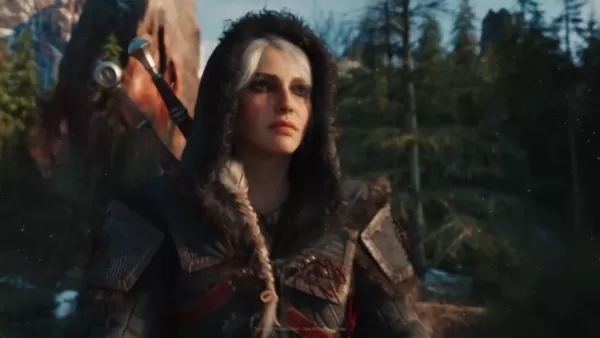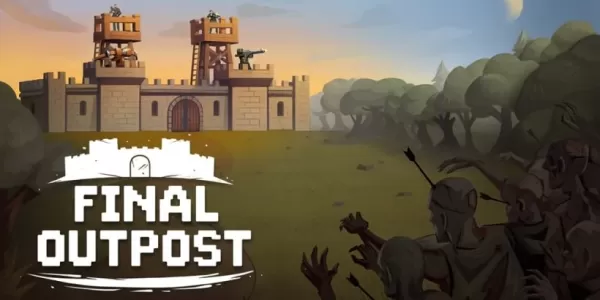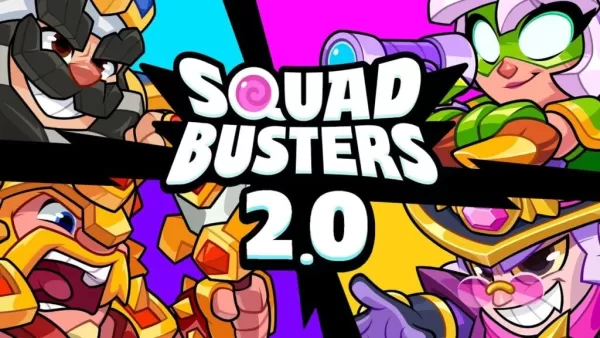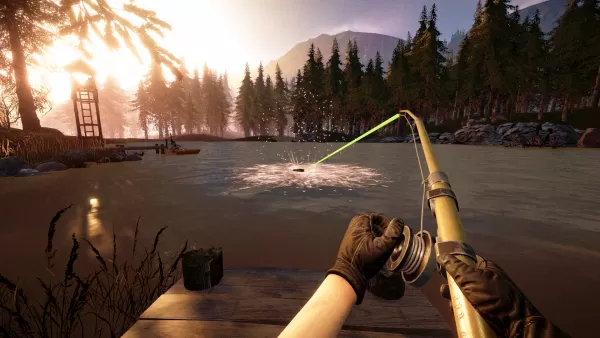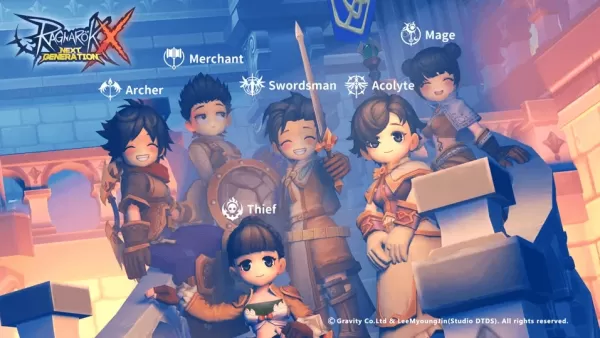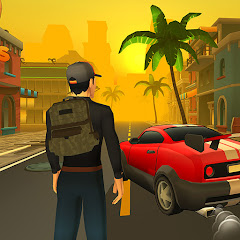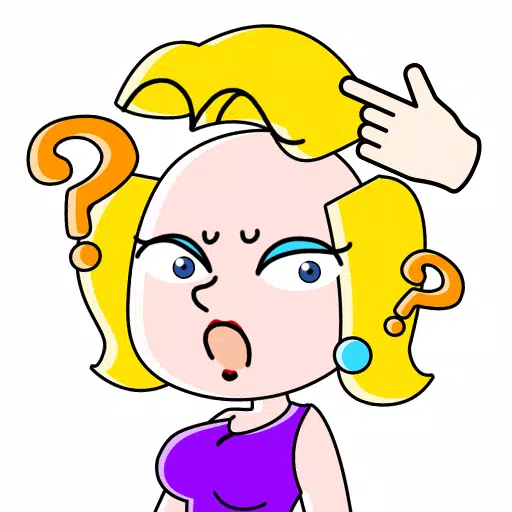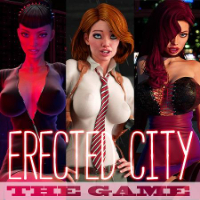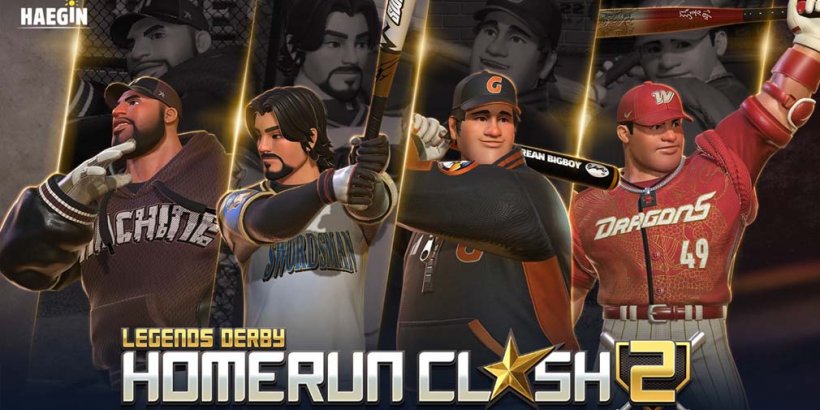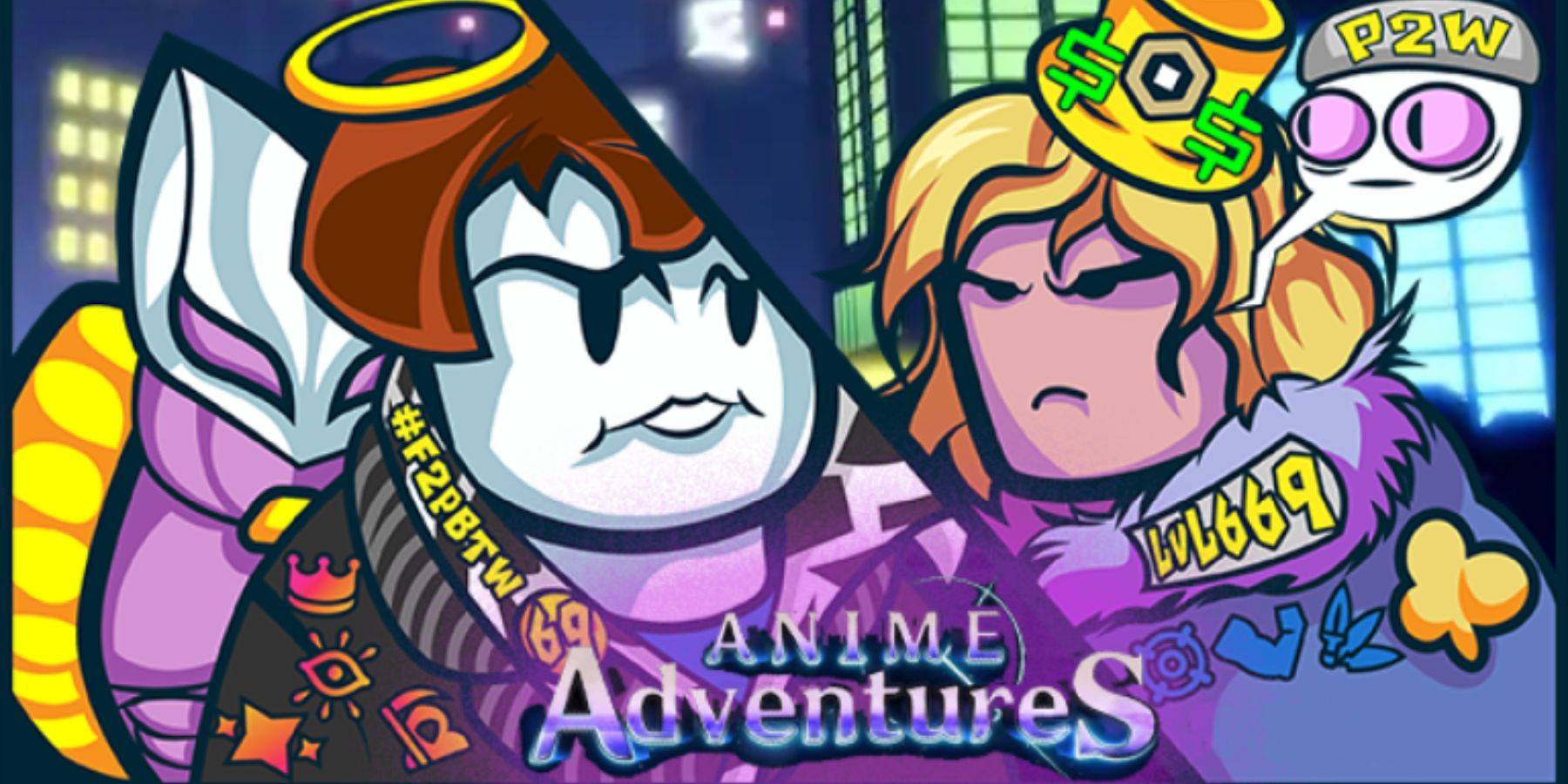Capcom's Revival: From Resident Evil 6 to Monster Hunter Wilds' Success
With *Monster Hunter Wilds* breaking Steam records and *Resident Evil* more popular than ever thanks to *Village* and a series of stellar remakes, it's almost as if Capcom is incapable of failure. However, this wasn't always the case. Less than a decade ago, after a string of critical and commercial flops, Capcom was struggling. It had lost its way and its audience.
Capcom was grappling with an identity crisis. *Resident Evil*, which pioneered the survival horror genre, had lost its edge after *Resident Evil 4*. Another flagship series, *Street Fighter*, was faltering following the poorly received *Street Fighter 5*. It seemed like the end could be near for Capcom and its beloved franchises.
Yet, amidst the challenges, a transformation began. A shift in Capcom's game development approach, bolstered by a new, powerful game engine, revitalized these iconic series. This change sparked a period of critical and financial success, propelling Capcom back into the gaming industry's forefront.
Resident Evil Lost Its Way
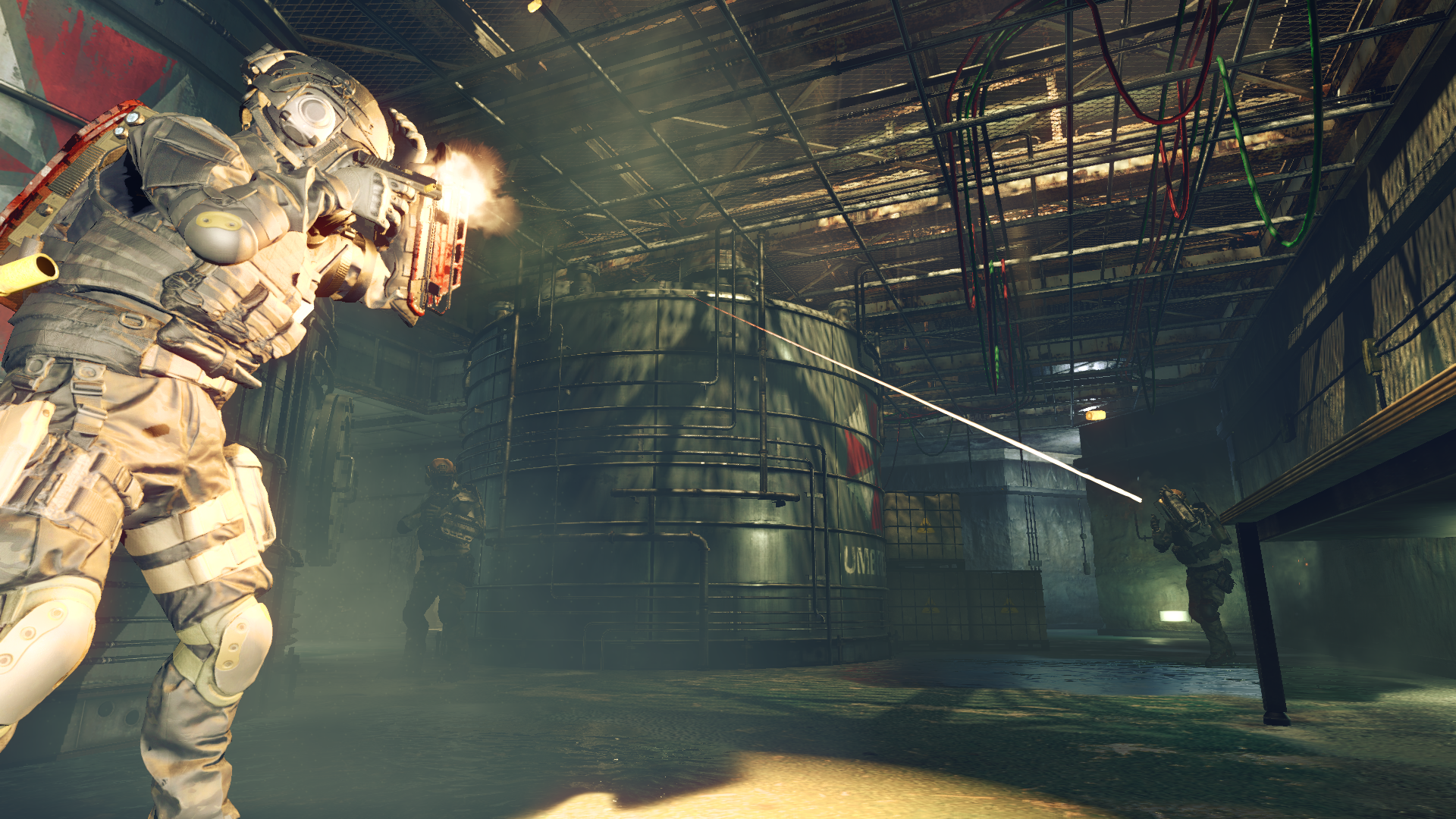 Resident Evil 6 marked a low point for the mainline series. Credit: Capcom
Resident Evil 6 marked a low point for the mainline series. Credit: Capcom
2016 was a challenging year for Capcom. The major *Resident Evil* release, *Umbrella Corps*, an online co-op shooter, was met with harsh criticism from both reviewers and fans. Meanwhile, *Street Fighter 5* left longtime fans skeptical, as it failed to live up to the legacy of *Street Fighter 4*. *Dead Rising 4*, featuring the return of Frank West, would be the last new entry in the series.
This period represented the nadir of a challenging era for Capcom, which had been struggling since 2010. The mainline *Resident Evil* games saw declining critical reception despite strong sales. *Street Fighter* was struggling, and other key franchises like *Devil May Cry* were absent. At the time, *Monster Hunter* was a massive hit in Japan but struggled to gain traction internationally.
"Many of us started feeling that what the fans and players wanted from the series was getting a little bit separate from what we were making," a sentiment that starkly contrasts with Capcom's current standing. Since 2017, Capcom has been a standout in the gaming industry, consistently releasing hit games from its renowned franchises, including *Monster Hunter World*, *Devil May Cry 5*, *Street Fighter 6*, and a series of acclaimed remakes and a soft reboot of *Resident Evil*. Capcom's recent track record suggests a company that has found its stride and is thriving.
Achieving this turnaround required more than just learning from past mistakes. Capcom had to overhaul its strategy, from targeting different player demographics to adopting new technology. To understand this transformation, IGN spoke with four of Capcom's leading creatives to explore how the company navigated its challenges and emerged stronger than ever.
Founded in 1979 as a manufacturer of electronic game machines, Capcom rose to prominence in the 80s and 90s with 2D classics like *Street Fighter* and *Mega Man*. The transition to 3D gaming with titles like *Resident Evil* marked a new era. Between 2000 and 2010, Capcom successfully modernized many of its iconic franchises, culminating in the critically acclaimed *Resident Evil 4*.
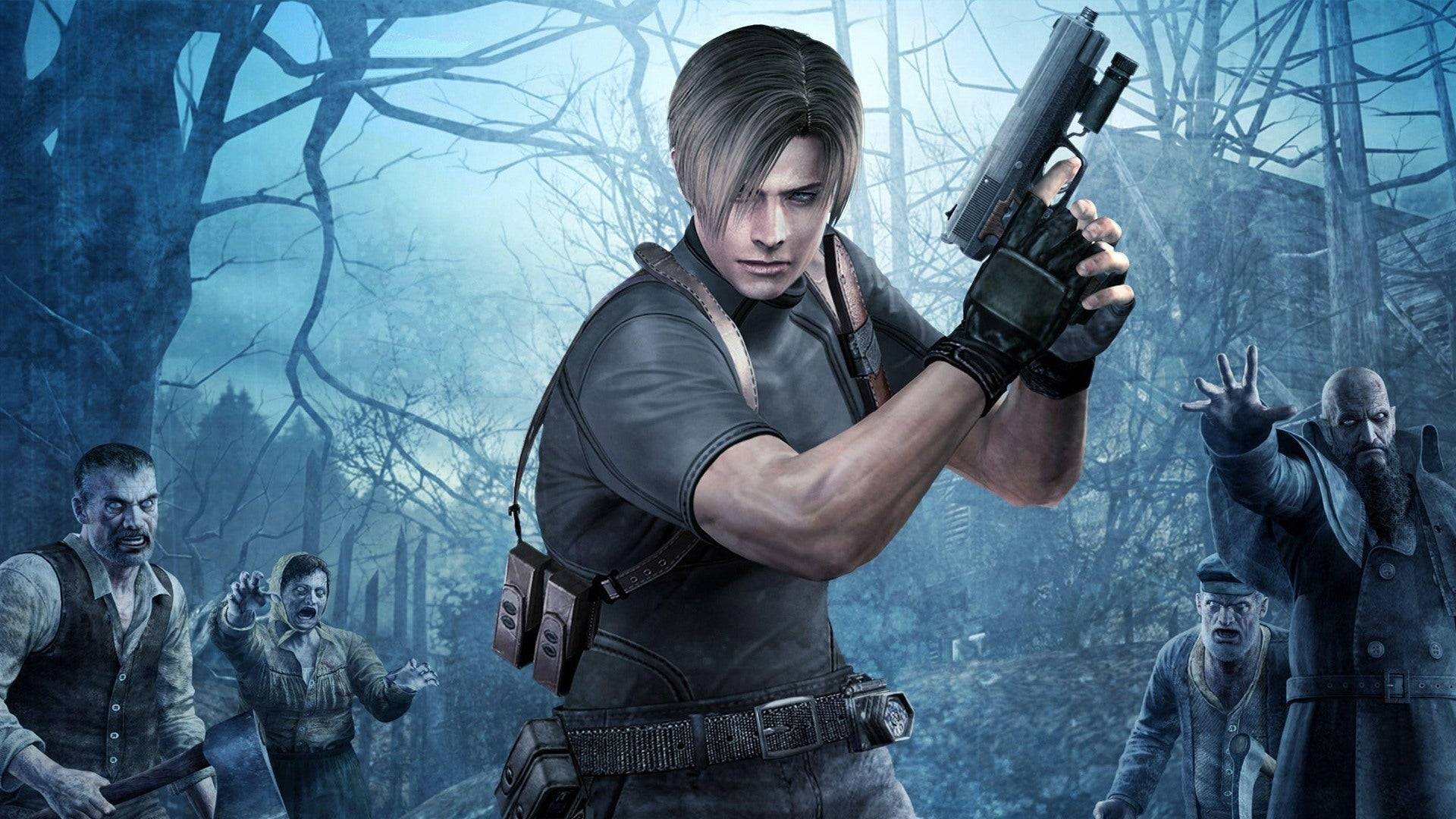 Resident Evil 4 is often hailed as one of the greatest games in the series. Credit: Capcom
Resident Evil 4 is often hailed as one of the greatest games in the series. Credit: Capcom
*Resident Evil 4*, released in 2005, is celebrated for its innovative blend of horror and action. However, this balance was lost in subsequent games. *Resident Evil 5* featured action-heavy sequences that strayed from the series' horror roots, a shift that was evident to both players and developers like *Resident Evil 4* remake director Yasuhiro Ampo.
"Overall throughout the Resident Evil series, we set up different goals, challenges, and things we want to try with each game… But this time, many of us started feeling that what the fans and players wanted from the series was getting a little bit separate from what we were making," Ampo explained.
This confusion led to *Resident Evil 6*, which attempted to cater to both action and horror fans but failed to satisfy either group fully. The game split its narrative across six playable characters and three storylines, diluting the series' core identity. Meanwhile, Capcom's *Street Fighter* series faced similar challenges. After the success of *Street Fighter 4*, *Street Fighter 5* was criticized for its lack of content and poor online functionality.
Capcom's struggles extended beyond *Resident Evil* and *Street Fighter*. *Devil May Cry* saw diminishing returns, leading to the outsourcing of *DmC: Devil May Cry* to Ninja Theory, which received mixed reactions. Other attempts to capture the Western market, like *Lost Planet* and *Asura's Wrath*, also fell short. The exception was *Dragon's Dogma*, a new dark fantasy RPG from *Devil May Cry* director Hideaki Itsuno, but overall, Capcom's focus seemed scattered.
It was clear that a change was necessary.
Street Fighter 5, The Lost Cause
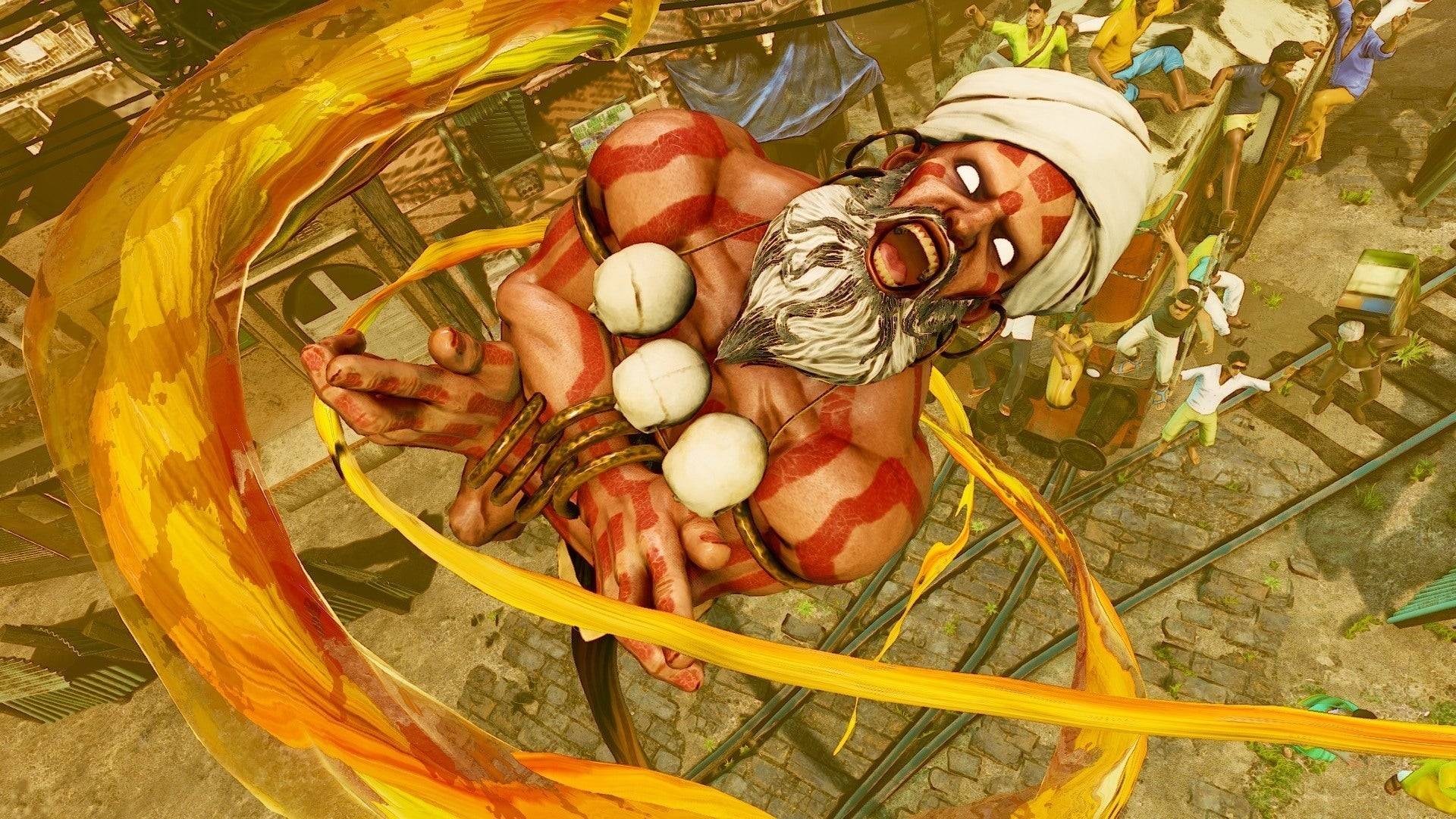 Street Fighter 5 was a disappointment. Credit: Capcom
Street Fighter 5 was a disappointment. Credit: Capcom
By the mid-2010s, Capcom began implementing strategic changes that would transform its fortunes. The first step was addressing the issues with *Street Fighter 5*. Director Takayuki Nakayama and producer Shuhei Matsumoto were tasked with stabilizing the game.
"There definitely were some challenges within the production of the game, and that was part of the reason why I was brought into the team," Nakayama admitted. "And because we were in a point in development where we couldn’t really make any major pivots or shifts, we had to proceed and move forward in the direction we were currently in, which created constraints on what we could and couldn’t do."
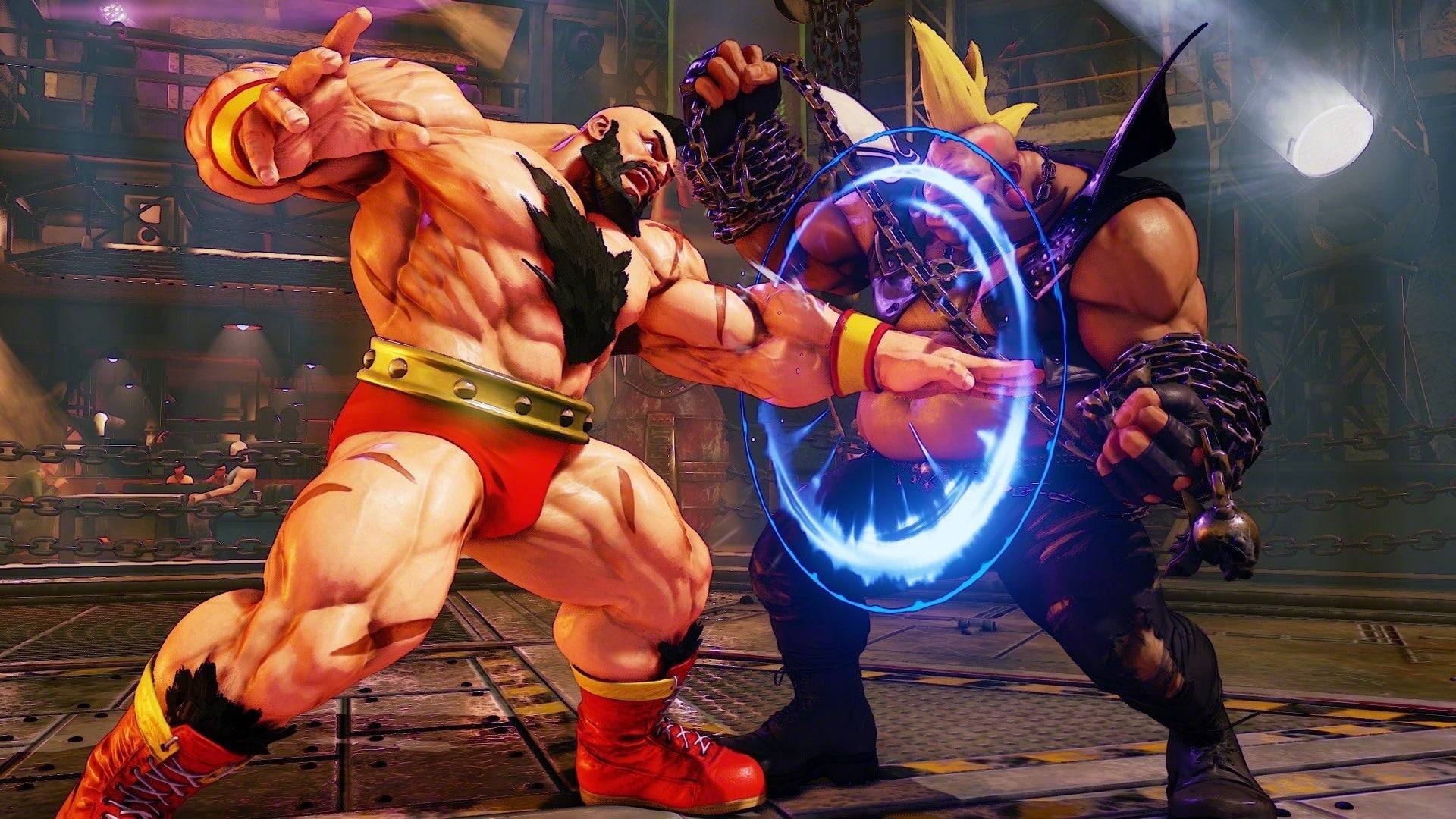 Street Fighter 5 was later improved with the release of Street Fighter 5: Arcade Edition. Credit: Capcom
Street Fighter 5 was later improved with the release of Street Fighter 5: Arcade Edition. Credit: Capcom
These constraints limited the scope of improvements, but Nakayama focused on addressing the most pressing issues, setting the stage for *Street Fighter 6*. "We just didn’t really have enough time to address some of the problems and challenges we faced in Street Fighter V," Nakayama said. "And so, with our hands tied behind our backs, we basically had to wait for those ideas to be brought back for the initial conceptual phases for Street Fighter 6, so we could tackle and do things properly for the next title."
Despite the challenges, abandoning *Street Fighter 5* was not an option. Matsumoto explained, "There wasn’t any sort of sense of like, ‘Okay let’s just end Street Fighter 5 and focus on Street Fighter 6.’ It was more like, while we were working on Street Fighter V, we were trying to figure out what we really wanted to do in Street Fighter 6 content-wise."
*Street Fighter 5* became a testing ground for new ideas, which were later refined in *Street Fighter 6*. The development team made numerous updates, from improving netcode and character balance to introducing new mechanics like V-Shift. The goal was not just to fix the game but to rediscover the fun in fighting games, which *Street Fighter 5* had lost.
"We both realized that fighting games are fun, and when you get used to them, it becomes more enjoyable and something you can essentially play forever as long as you have an opponent to play against," Matsumoto said. "However, one of the challenges that we faced with Street Fighter V is that we felt that there wasn’t a clear pathway that helped guide players to get to that level where they finally feel like they’re having fun and will want to continue playing."
*Street Fighter 6* aimed to be more approachable for new players while retaining the depth that seasoned fans loved. By using *Street Fighter 5* as a testbed, Capcom ensured that *Street Fighter 6* launched as one of the most critically acclaimed games in the franchise.
To prevent future overhauls, Capcom needed a significant shift in strategy. This led to crucial behind-the-scenes changes.
Monster Hunter Took Over The World
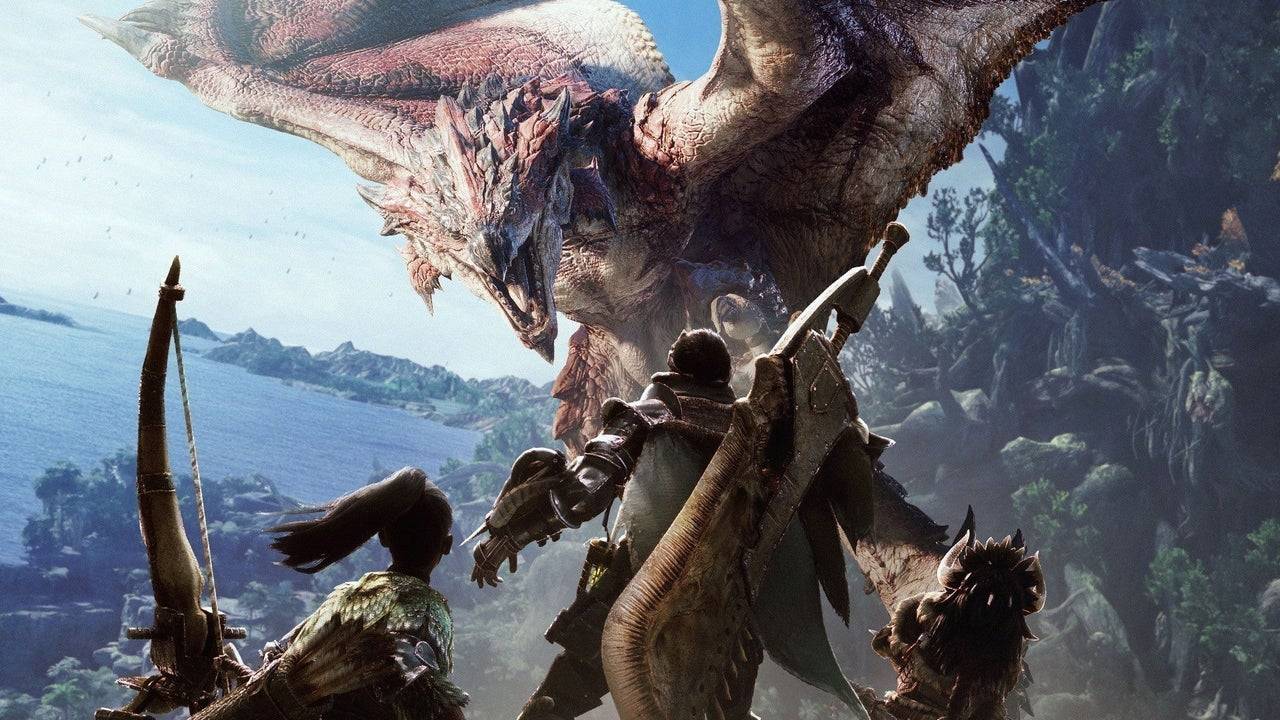 Monster Hunter's global success began with Monster Hunter: World. Credit: Capcom
Monster Hunter's global success began with Monster Hunter: World. Credit: Capcom
Around the time of *Street Fighter 5*'s launch in 2016, Capcom underwent an internal reorganization to prepare for a new generation of games. These games would run on the company's new RE Engine, replacing the aging MT Framework. This change was about more than just tools; it was about creating games for a global audience.
"It was a few factors that came together," said Hideaki Itsuno, a former game director at Capcom known for his work on *Devil May Cry*. "The change of the engine and also all teams were given a very clear goal at that point to make games that reach the global market. [Games] that are fun for everyone."
During the PS3 and Xbox 360 era, Capcom's focus on capturing the Western market led to mixed results. While *Resident Evil 4* was a hit, spinoffs like *Umbrella Corps* and *Lost Planet* failed to resonate. Capcom realized it needed to create games that appealed to a broader audience.
"I think that we had that clear goal of just focusing and not holding anything back," Itsuno said. "Towards making good games that would reach people from all over the world."
The period leading up to 2017 was pivotal. "The changes in organization and the changes in the engine, all these elements came together around that time," Itsuno noted. The launch of *Resident Evil 7* in 2017 marked the beginning of Capcom's renaissance.
No series better exemplifies Capcom's new global focus than *Monster Hunter*. While popular in the West, *Monster Hunter* was significantly more successful in Japan. The series' success on handheld consoles like the PSP, which were more popular in Japan, contributed to this disparity.
"20 years ago in Japan, having a network connection wasn't as easy, and there weren’t a huge amount of people playing Monster Hunter online. However, handheld consoles made multiplayer gameplay easy without internet access, and I regard it as a great success that we had players experience the game in this way, which was one of the ways we really wished for them to play and enjoy it, even in that era when online gameplay wasn't easy," explained *Monster Hunter* executive producer Ryozo Tsujimoto.
*Monster Hunter*'s focus on cooperative play was well-suited to handheld consoles, which facilitated easy multiplayer without internet access. This inadvertently reinforced *Monster Hunter* as a Japan-centric brand, despite its global potential.
However, as internet infrastructure improved globally, Tsujimoto and his team saw an opportunity to expand *Monster Hunter*'s reach. *Monster Hunter: World*, released in 2018 on PlayStation 4, Xbox One, and PC, was designed to appeal to a worldwide audience. It featured enhanced graphics, larger areas, and bigger monsters, all while ensuring simultaneous global release and no region-exclusive content.
"Our approach to the globalization of the series and Monster Hunter in general really ties into not only the themes that we had going into designing the game, but also in the name of the game," Tsujimoto revealed. "The fact that we called it Monster Hunter: World is really kind of a nod to the fact that we wanted to appeal to this worldwide audience that we wanted to really dig into and experience Monster Hunter for the first time."
To broaden *Monster Hunter*'s appeal, Capcom conducted global focus tests, which influenced game design and led to changes like displaying damage numbers. These adjustments helped *Monster Hunter: World* and its follow-up, *Monster Hunter Rise*, achieve unprecedented sales, surpassing 20 million copies each.
"At its heart, Monster Hunter really is an action game, and that sense of accomplishment you get from really mastering that action is an important aspect of Monster Hunter," Tsujimoto explained. "But for newer players, it's really about getting to that point. The steps involved in getting to that sense of accomplishment is what we're trying to strategize for, in terms of designing for new players. So with World and Rise, for example, we were taking great care to analyze where players got stuck, what was hard to understand, what they were having trouble with, getting player feedback, and also doing our own kind of research into that. And all of that kind of knowledge has impacted how we've implemented new systems into Wilds."
Resident Evil 7 Began Turning Things Around
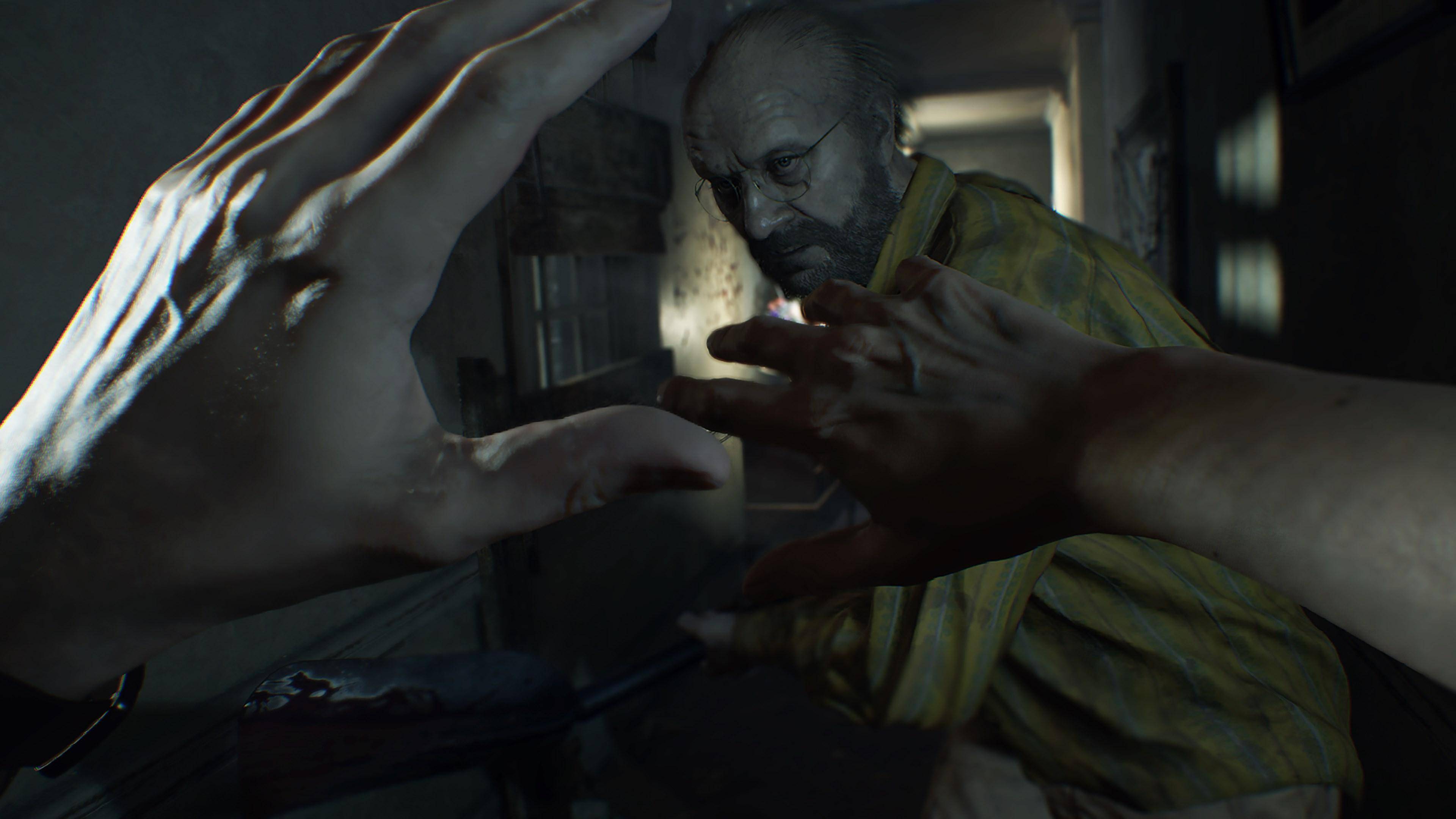 Resident Evil 7 brought the series back to its horror roots. Credit: Capcom
Resident Evil 7 brought the series back to its horror roots. Credit: Capcom
While *Monster Hunter* had a winning formula, *Resident Evil* faced the challenge of balancing action and horror. Executive producer Jun Takeuchi made the pivotal decision to return to the series' survival horror roots.
"It was around the time I was working on Resident Evil Revelations 1 and 2. I was trying to test different things, try different approaches," recalled *Resident Evil 2* and *4* remake director Yasuhiro Ampo. "And around this time is when the R&D teams were divided into R&D division one and two. The executive producer of the Resident Evil series, Jun Takeuchi, took command of R&D division one, and he set the core direction that the Resident Evil series needed to go back to its origins, to its roots."
*Resident Evil 7* was announced at PlayStation's E3 2016 conference with a first-person perspective, a departure from the series' traditional third-person view. This shift allowed *Resident Evil* to recapture its horror essence.
"With Resident Evil 7, the executive producer, Jun Takeuchi, made it clear that we cannot underestimate how critical it is for the series for it to be scary and about survival. So he made it clear that Resident Evil 7 would go back to its origins, it would be very cautious with its survival elements. And with that as a basis, then we would try new and different things," Ampo said.
*Resident Evil 7* was a success, reintroducing survival horror to the series with its unsettling southern gothic setting. While not as universally acclaimed as *Resident Evil 4*, it marked a significant return to form.
Capcom did not abandon the third-person perspective entirely. The company planned to release third-person games through remakes, starting with *Resident Evil 2*. The demand for remakes was evident from fan projects, prompting producer Yoshiaki Hirabayashi to declare, "Well, we’ll do it."
The *Resident Evil 2* remake was a critical and commercial success, blending horror with action and puzzles, and introducing the menacing Mr. X. Under Ampo's direction, it became the second best-selling game in the *Resident Evil* franchise.
Following the success of *Resident Evil 2*, Capcom remade *Resident Evil 3*. However, remaking *Resident Evil 4*, a game still considered modern despite its age, was met with internal hesitation. "As you mentioned, [Resident Evil 4] was still a title that enjoyed some popularity. So there was a lot of internal discussion on how maybe it’s not a good idea. Maybe we don’t need a remake for Resident Evil 4, especially because Resident Evil 4 is a game that is so beloved. If we get anything wrong with the remake, people might be quite vocal about their discomfort," Ampo revealed.
Despite the concerns, the *Resident Evil 4* remake was a hit, fine-tuning the balance between action and horror to align with Takeuchi's vision of returning to survival horror roots. The remake removed some of the original's campier elements, adopting a darker, moodier tone while retaining thrilling action sequences.
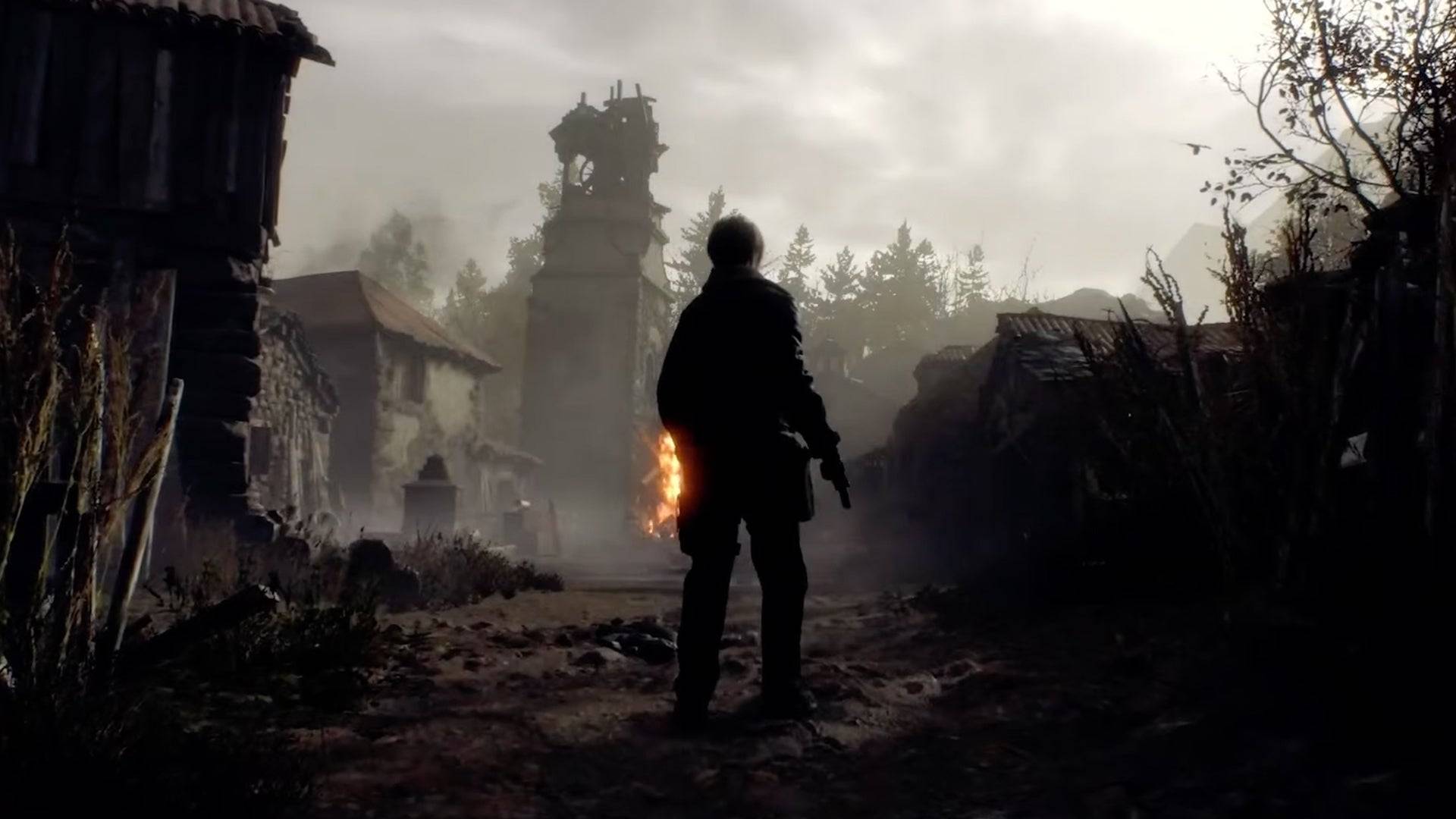 Resident Evil 4 Remake revitalized the series. Credit: Capcom
Resident Evil 4 Remake revitalized the series. Credit: Capcom
Simultaneously, *Devil May Cry* director Hideaki Itsuno sought to reinvigorate the action genre. After working on *Dragon's Dogma*, Itsuno returned to *Devil May Cry* with a vision to challenge players, leveraging Capcom's new RE Engine.
The Reason Behind The Change
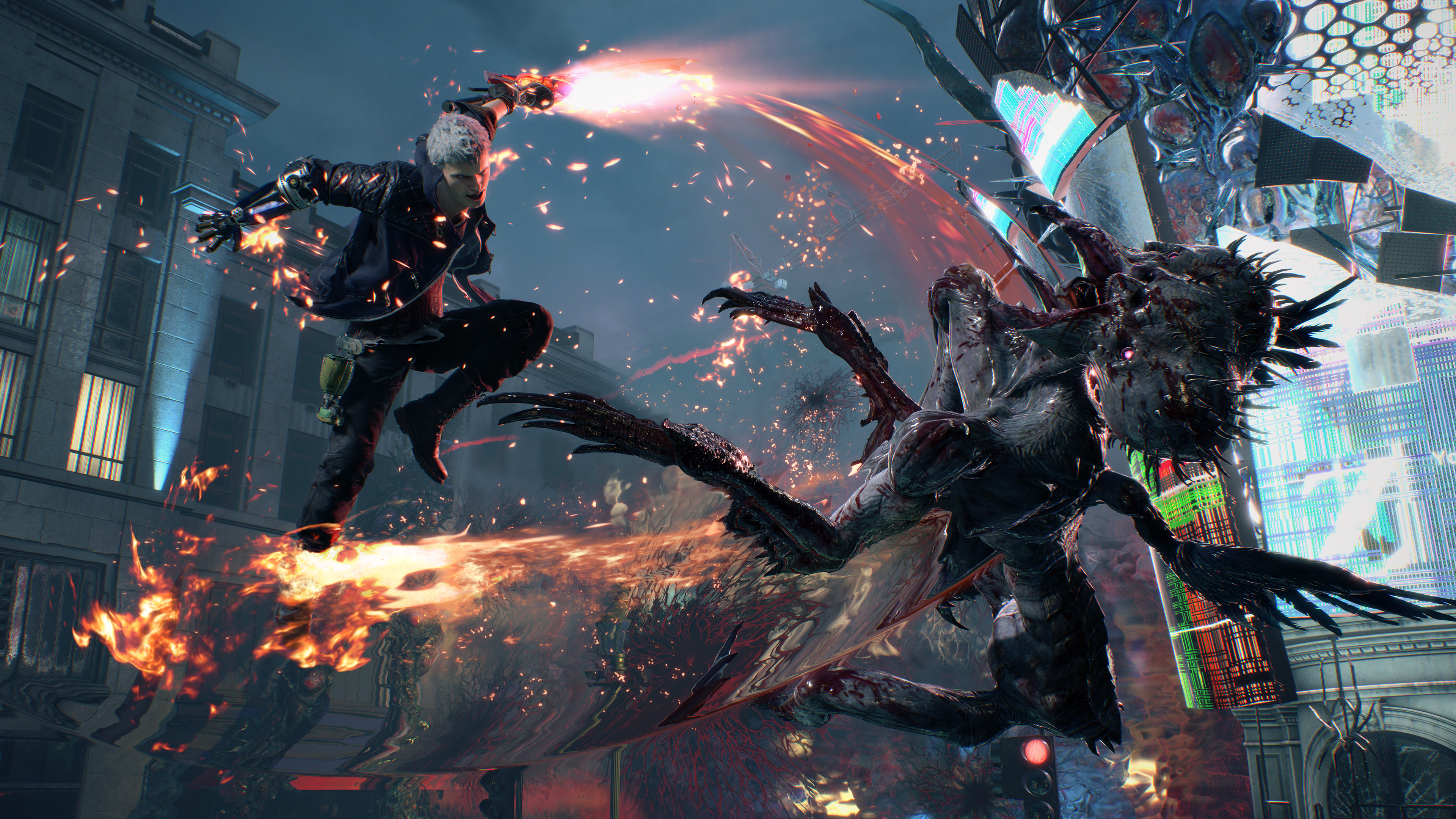 Devil May Cry 5 aimed to be the coolest action game. Credit: Capcom
Devil May Cry 5 aimed to be the coolest action game. Credit: Capcom
"I felt like the main trend with action games was to make action games that were very kind," Itsuno admitted. "Maybe, for me, a little bit too kind to the players, lending a hand to the player too much to my liking."
Itsuno, who directed *Devil May Cry* starting with the second game, returned after nearly 11 years with *Devil May Cry 5*. The time away allowed him to refine his vision, and the new RE Engine provided the technological advancements needed to achieve it.
"Technology-wise, there were not just little improvements that you would have when you work on a series consecutively," Itsuno said. "When there’s a wide timeframe, [the technology] changes significantly."
The RE Engine, which powers most of Capcom's current games, replaced the MT Framework and offered enhanced visual fidelity and flexibility. "So the original concept for the RE Engine was to allow for a development environment that was less stressful and could help us to make things quicker. Because it’s an internally developed engine, when we needed any additional tools, well, we could ask for them internally. They could be fixed somewhat quickly, internally, and also iterated on," Ampo explained.
This flexibility allowed Capcom's developers to experiment and refine their games rapidly. For Itsuno, whose goal was to create the "coolest" action game, the RE Engine's capabilities were crucial. "Devil May Cry is a franchise that stands on being cool," Itsuno said. "That’s what the franchise is, it’s about being cool. Ever since I took over the series from Devil May Cry 3, I put everything that I, as a person, I considered throughout my life to be cool. Anything I’ve seen on TV, in movies, and comics I’ve read, any sport experiences I’ve had, I try to distill everything that I think is cool into what the game is."
A New Capcom Golden Age
Since 2017, Capcom has released a game of the year contender almost annually. In an industry where consistency is challenging, Capcom's streak of 10 critically acclaimed games in less than a decade is remarkable. This trend continues with *Monster Hunter Wilds*.
Capcom's focus on creating globally appealing games, powered by a technologically advanced engine, has been a recipe for success. The company seamlessly transitions between genres, from fighting games to survival horror to open-world action RPGs, without missing a beat.
"Capcom is going through a golden era, and, well, now we have to do everything we can so that this lasts one more year, one more year, and every year, one more year," said *Monster Hunter* executive producer Ryozo Tsujimoto. "Hopefully we can extend it as long as we can."
Capcom's mission to create global, mainstream games has not diluted its core identities. Instead, it has found a balance that keeps its games true to their roots while expanding their audience by millions. As other studios struggle with identity and trends, Capcom's strategic changes have ushered in a new golden age that shows no signs of slowing down.
When asked about this new golden age, Capcom's directors were optimistic. "It’s a very exciting time to be at Capcom right now. A lot of us are able to get excited about what we’re working on and are able to focus on things that we think are fun. So, yes, I guess a golden age may be one interpretation of that," said *Street Fighter* director Takayuki Nakayama.
Capcom may have faced challenges, but it has risen stronger than ever, proving that with the right strategy and technology, even the most troubled companies can achieve unprecedented success.







